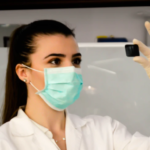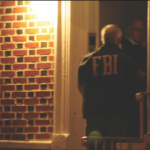Illegal Search Under the Fourth Amendment
If you’ve been wrongfully convicted or sentenced, you will need attorneys who can win cases on appeal in Michigan. We can make sure your rights are protected.

The Government Can Take a Warrantless Mouth DNA Swab as Part of a Routine Booking Procedure
The Fourth Amendment of the United States Constitution provides, “The right of the people to be secure in their persons, houses, papers, and effects, against unreasonable searches and seizures, shall not be violated, and no Warrants shall issue, but upon probable cause, supported by Oath or affirmation, and particularly describing the place to be searched, and the persons or things to be seized.” There have been thousands of cases where United States Federal and State Courts have been asked to determine what constitutes an unreasonable search. A few recent cases examined the constitutionality of police taking warrantless mouth DNA swabs.
One of the more recent cases relative to the 4th Amendment is Maryland v King, which the United States Supreme Court decided in a 5-4 decision on June 3, 2013. This case allows police to take a swab of the person’s mouth to collect a DNA sample as part of a routine booking procedure for a lawful arrest on a “serious offense.”
The Key Factor is: What is Reasonable?
The Supreme Court determined the key factor is whether the action is reasonable. The Court said that to access what is reasonable; there must be a weighing of the government’s interest in identifying the persons in their custody versus the degree to which a person’s privacy is infringed upon. It was also stated that the Court felt it essential for law enforcement to know the identity of the people in custody, especially in light of the fact that some people being held for minor offenses can turn out to be dangerous criminals (Timothy McVeigh – the Oklahoma City Bomber was arrested for driving without a license plate).
The Supreme Court determined that taking a DNA sample during the booking process, from a mouth DNA swab, is the same function as obtaining a person’s name, taking a picture or fingerprints, and there is minimal intrusion (no risk, trauma, pain, or breaking of the skin). Also, a person taken lawfully into custody has a lesser expectation of privacy.

The Ruling on Mouth DNA Swabs is Contrary to the U.S. Constitutional Provisions
The defense attorneys with LEWIS & DICKSTEIN, P.L.L.C. take great exception with the United States Supreme Court’s holding in Maryland v. King. Although a suspect’s identity is vital to determining if the person has outstanding warrants, as the Supreme Court indicates, taking of DNA does not accomplish any of the false purposes the Court claims the ruling fulfills. In reality, evidence from a mouth DNA swab takes months in most cases to analyze, so it cannot be considered relative to arrest time identification decisions. As the courts in Michigan and the United States continuously deplete and devalue our constitutional rights, the criminal defense attorney specialists with LEWIS & DICKSTEIN, P.L.L.C. will fight every day to protect the constitutional rights of those accused of felony or misdemeanor criminal offenses.
Procedure for a Mouth DNA Swab
A DNA swab, also known as a buccal swab, is a method used to collect DNA samples from the inside of a person’s mouth. The procedure is relatively simple and non-invasive. Here’s a general outline of the steps involved in a mouth DNA swab:
- Preparation: The booking officers will have a DNA collection kit supplied by the Michigan State Police. The kit includes swabs, tubes, and labels. The kit must be clean and sterile.
- Washing hands: The officer collecting the DNA sample must wash or sanitize their hands before starting the procedure to minimize the risk of contamination.
- Swab collection: The officer will open the DNA collection kit and remove one of the swabs. It usually looks like a long cotton swab with a plastic handle. The officer must be careful not to touch the cotton tip with their fingers.
- Swabbing process: The officer is supposed to gently rub the cotton tip of the swab against the inside of the subject’s cheek, specifically the area where the buccal cells are located. They apply slight pressure and rotate the swab several times to ensure sufficient sample collection. This process is usually repeated on both sides of the mouth to obtain an adequate DNA sample.
- Air drying: After collecting the sample, the officer will let the swab air dry for a few minutes to ensure the DNA is appropriately preserved.
- Swab packaging: Once the mouth DNA swab is dry, the officer will place it back into the provided tube or packaging.
- Labeling: The officer will use the labels provided by the Michigan State Police in the DNA collection kit to properly identify the sample and the subject, including information such as the person’s name, collection date, and any other required details.
- Submission: The DNA sample is sent to the Michigan State Police for analysis and processing.

A Michigan Criminal Defense Attorney will help when constitutional issues need to be evaluated and assessed.
When you face the possibility that your constitutional rights have been violated, it is essential that you have legal representation with experience, knowledge, and expertise in constitutional law issues. An illegal search can be anything from an unconsented mouth DNA swab to the search of a house or car. The attorneys at LEWIS & DICKSTEIN, P.L.L.C. have decades of legal experience in criminal and constitutional law matters. You need to have your rights protected and a criminal defense attorney who will fight to stop the government from overstepping its bounds. Call us today for a free consultation and confidential case evaluation. We will find a way to help you!
Call us today at (248) 263-6800 for a free consultation or complete an online Request for Assistance Form. We will contact you promptly and find a way to help you.












